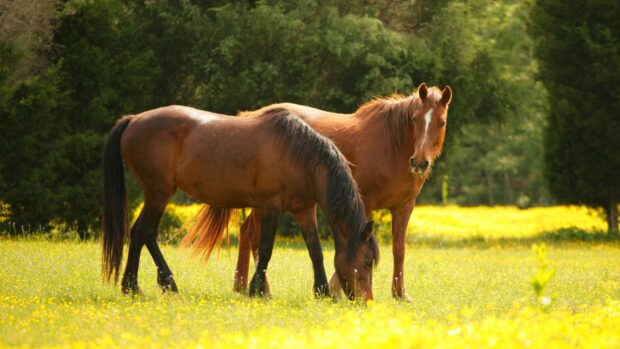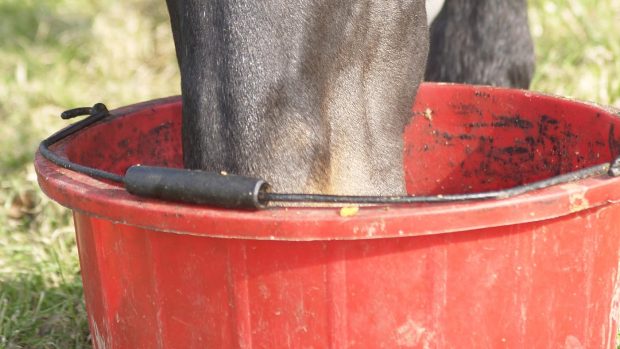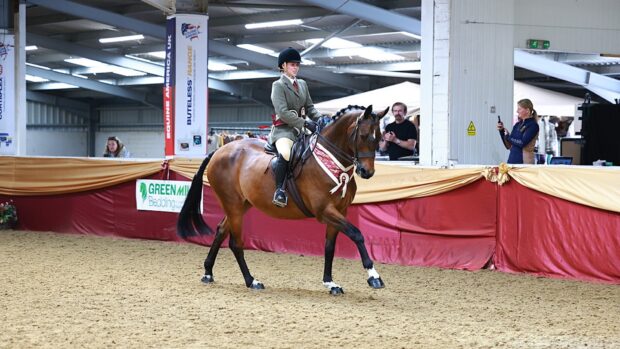Q: I am trying to get my 20-year-old mare fit, as I would like to show her. I am also finding it difficult to get her on to the bit and respond to me – she’s has done this in the past but is now unfit and stubborn.
I have read many books on the subject, but they tend to discuss this type of work with regards to young horses or assume you’ve already achieved this level of horsemanship.
I ride her in an eggbutt snaffle with a running martingale. Please could you give me some advice?
Julianne Aston, from the Veteran Horse Society replies: At 20 your mare is still a veteran ‘youngster’ – indeed, the Veteran Horse Society has many registered equines aged 25 years old and over, including Thoroughbreds, going strong and winning veteran showing classes.
Before you start your fitnessplan, you have to remember to take it steadily with your veteran as it will take her a lot longer to get fit than those less advanced in years.
You will also have to take her age and breed into consideration – older cobs, for example, may carrymore weight than a Thoroughbred of the same age and therefore may take longer to get fit.
A change to your mare’s normal work routine will also see a change in her attitude and zest for life. At this point, I would highly recommend you have training from an understanding, qualified instructor with a knowledge of veterans, who will give you constructive criticism on how to improve and help you work as a team.
Start off her fitness programme with roadwork (always in walk) about twice a week and hacking, if possible, about three times. Walking can be very productive for veterans and really helps to bring on fitness.
Make sure she is not being overfed. If she is out at grass, bring her in a couple of hours or more before you ride her, as overweight horses may be slow and unwilling through no fault of their own. Many veterans still act like four-year-olds, and much of this is put down to their feeding and stimulation in life. So remember to check her diet carefully.
Never push your mare beyond her capabilities and don’t overschool her as she will feel it more than a younger horse. You’ll find that if you’re patient with her, introduce gentle lungeing, and ask her to go forward correctly under the saddle,the end result will be of benefit to both of you.
This will improve her suppleness and muscle development. Keep working slowly and eventually she will understand what you are asking.
| Click here to subscribe to HORSE magazine, which is packed with horsecare features and training advice every month |
Read more expert advice on caring for veteran horses:



